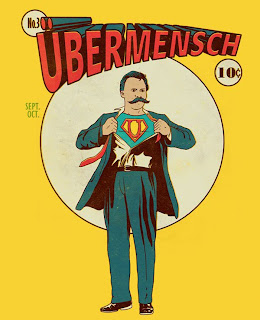 I just finished the short novel, "The Man Who Lived in Inner Space," by Arnold Federbush. It's about a man who goes back to the Sea. I never could have predicted that what started as an environmental monologue about the beauty of the Ocean could end up embodying my deepest thoughts about the nature of cosmic consciousness, true knowledge and the unavoidable connections between every part of ourselves and every part of every other self. But then again, I also never could have predicted the ending to "This is the End," so maybe I'm off my game? It's true though. Take this passage from one of the later chapters:
I just finished the short novel, "The Man Who Lived in Inner Space," by Arnold Federbush. It's about a man who goes back to the Sea. I never could have predicted that what started as an environmental monologue about the beauty of the Ocean could end up embodying my deepest thoughts about the nature of cosmic consciousness, true knowledge and the unavoidable connections between every part of ourselves and every part of every other self. But then again, I also never could have predicted the ending to "This is the End," so maybe I'm off my game? It's true though. Take this passage from one of the later chapters: "Time could not stop for it had never begun. This deepest part of the sea was beyond the grasp of all things by which time is perceived, the light and dark of days, the cold and warmth of the seasons, the shifting of the tides, and even the subtler changes that measure eons. There was only time outside time, the eternal night and cold, the chaos before Creation, akin to death.
But not quite death. In the sea there is no true death, for life is implicit in death just as death is implicit in life. Each thing lives from the day it dies just as it dies from the day it lives, part of an infinite chain that circles about and comes back to its beginnings.
 The outer shell was dead, but there was an inner life substance, a spirit protoplasm that once related man to the beasts of the forest and made them brothers. It tied the smallest particles in the smallest drop of water to the universe in slow cosmic dance. It joined atoms to galaxies, molecules to stars, and for a long while in the outer life of this one particular shell it had been slowly unchained and it now began to stir in those great slow rhythms.
The outer shell was dead, but there was an inner life substance, a spirit protoplasm that once related man to the beasts of the forest and made them brothers. It tied the smallest particles in the smallest drop of water to the universe in slow cosmic dance. It joined atoms to galaxies, molecules to stars, and for a long while in the outer life of this one particular shell it had been slowly unchained and it now began to stir in those great slow rhythms.That spirit protoplasm touched the larger spirit that was once called Nephe, Naimu, Oannes, the Spirit of God upon the waters, or simply the sea. Then, stirred by that great force, in turn it stirred each tiny cell, each of the minute billions of creatures that together formed the wondrous small universe that was once called a human being, albeit a crippled, scarred, and imperfect one. Each cell obeyed and returned along the infinite circle to its beginnings until finally that dead outer shell stirred, responded, and returned.
 It was warmed and nourished in the saline solution that is the cauldron of all the life-giving substances on earth, the bringer of rebirth in baptism, the worker of the most powerful magic, the most common element and rarest wonder. It bathed in the same sea as its ancient aquatic ancestor. Thus was present tied to past as time to timelessness, inner space to outer space, and oneness to allness.
It was warmed and nourished in the saline solution that is the cauldron of all the life-giving substances on earth, the bringer of rebirth in baptism, the worker of the most powerful magic, the most common element and rarest wonder. It bathed in the same sea as its ancient aquatic ancestor. Thus was present tied to past as time to timelessness, inner space to outer space, and oneness to allness.And so a circle closed."
That is more than just a love of the Ocean my friends. That is a deeper stirring, the one that unites so many of us dreamers, if only in dreams.

















